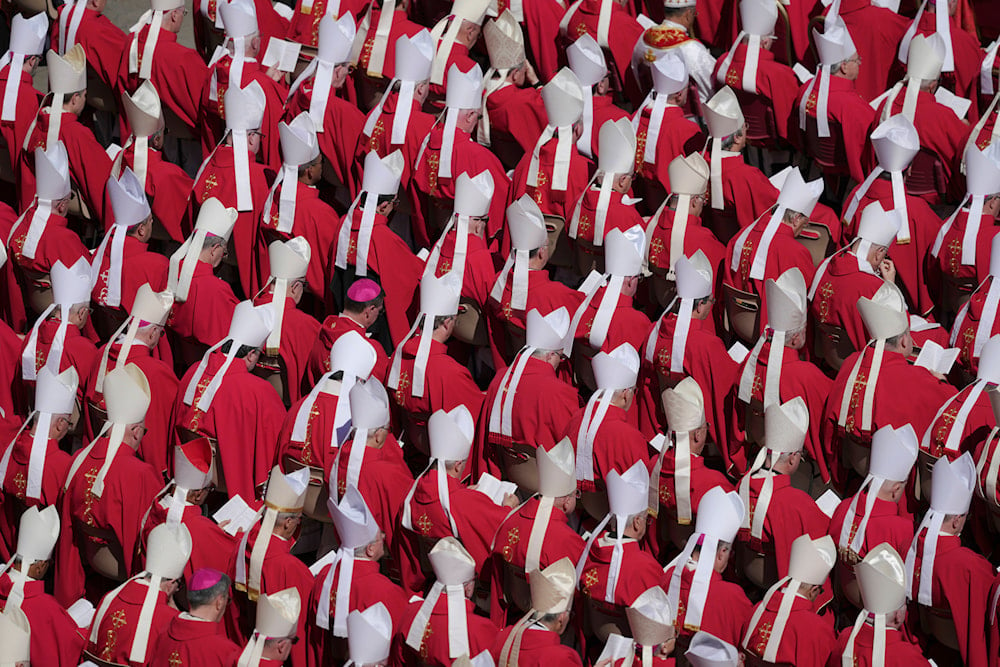Vatican lobbying tense as next pope's election remains uncertain
135 cardinals will gather for the 2025 papal conclave to choose Pope Francis’s successor, with diverse candidates shaping the future of the Catholic Church.
-

Clergy are pictured during the funeral of Pope Francis in St. Peter's Square at the Vatican, on Saturday, April 26, 2025. (AP)
In the coming days, 135 cardinals will gather in the Sistine Chapel to elect a successor to Pope Francis, a decision that will shape the future direction of the Catholic Church. This 2025 papal conclave is marked by unpredictability, with a majority of the cardinal-electors participating in their first papal election.
80% of the cardinals eligible to vote were appointed by Pope Francis over the past 12 years, including 20 who were made cardinals just last December.
Many have only recently met after arriving in Rome following the pope’s passing, with the conclave being further complicated by the broad geographic diversity among the electors.
Historically, few frontrunners have secured the papacy, as seen in 2013 when Jorge Mario Bergoglio, not initially considered a favorite, emerged as Pope Francis. Vatican analysts have identified more than 20 potential papal candidates, known as Papabile, though discreet discussions are expected to continue until formal voting begins.
Francis’s appointments have significantly altered the composition of the College of Cardinals. Europeans, who once held a majority, now make up 39% of the body. Asian and Latin American/Caribbean cardinals each represent 18%, while sub-Saharan African cardinals account for 12%.
The pope prioritized inclusivity, elevating leaders from smaller Catholic communities in Algeria, Iran, and Mongolia. Notably, in December, he appointed seven cardinals under the age of 60, including 44-year-old Mykola Bychok from Melbourne.
Conservative and progressive influences on the conclave
As the conclave approaches, both conservative and progressive factions within the Church are lobbying to shape the outcome. Influential conservatives such as American Cardinal Raymond Burke and German Cardinal Gerhard Müller are advocating for a traditionalist successor. Müller recently warned of a potential schism if the next pope does not uphold orthodox values.
On the other hand, progressive voices like Luxembourg’s Jean-Claude Hollerich, Britain’s Timothy Radcliffe, and Canada’s Michael Czerny are pushing for continued modernization within the Church. Despite claims that Pope Francis stacked the College with allies, historians argue that no pope has ever directly determined his successor.
While the cardinals may align with conservative or progressive ideals, their views often span a spectrum. Some may hold traditional positions on issues like sexuality while supporting progressive action on climate change. Behind-the-scenes lobbying is well underway, as Vatican corridors and gardens become the stage for discussions influencing one of the most closely watched papal elections in recent history.

 3 Min Read
3 Min Read








